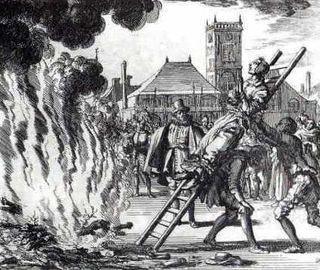 by Akim Reinhardt
by Akim Reinhardt
European Historians have long eschewed the term “Dark Ages.” Few of them still use it, and many of them shiver when they encounter it in popular culture. Scholars rightly point out that the term, popularly understood as connoting a time of death, ignorance, stasis, and low quality of life, is prejudiced and misleading.
And so my apologies to them as I drag this troublesome phrase to center stage yet again, offering a new variation on its meaning.
In this essay I am taking the liberty of modifying the tem “Dark Ages” and applying to a modern as well as a historical context. I use it to refer to a general culture of fundamentalism permeating societies, old and new. By “Dark Age” I mean to describe any large scale effort to dim human understanding by submerging it under a blanket of fundamentalist dogma. And far from Europe of 1,500 years ago, my main purpose is to talk about far more recent matters around the world.
Life is, of course, a multi-faceted affair. The complex relationships among individuals and between individuals and societies produce a host of economic, cultural, political, and social manifestations. But one of the defining characteristics of the European Dark Ages, as I am now using the term, was the degree to which those multi-faceted aspects of the world were flattened by religious theology and dogma. As the Catholic Church grew in power and spread across Europe from roughly 500-1500, it was able, at least to some degree, to sublimate political, cultural, social, and economic understanding and action under its dogmatic authority. In many realms of life far beyond religion, forms of knowledge and action were subject to theological sanction.
Those who take pride in Western civilization, or even those like myself who don't necessarily, but who simply acknowledge its various achievements alongside its various shortcomings, recognize a series of factors that led to those achievements. Some of those factors, such as colonialism, are horrific. Some, like the growth of secular thought, are more admirable.
Not that secular thought in and of itself is intrinsically laudable; maybe it is, though I don't think so. But rather, that the rise of secular thought enabled Europe, over the course of centuries, to throw off it's own self-imposed yoke of religious absolutism. And that freeing itself in this way was one of the factors spurring Europe's many impressive achievements over the last half-millennium.
Most denizens of what was once known as the Christian world, including various colonial offshoots such as the United States and Australia, now accept and even take for granted a multi-faceted conception of life and human interaction. For most of them, including many of the religious ones, it is a given that moving away from a world view flattened by religion, at the very least, facilitated the development of things like science and the modern explosion of wealth. Of course the move from a medieval to a modern mind set also unleashed a variety of problems; but on balance, relatively few Westerners would willingly return to any version of medieval Christian theocracy.1
Read more »
by Akim Reinhardt
